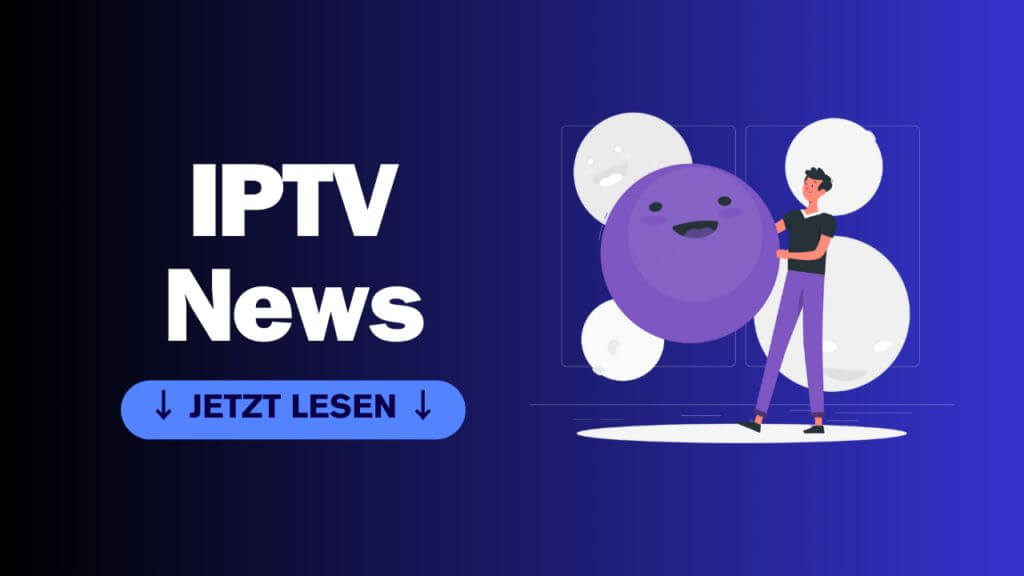IPTV vs. DeZoR : Why IPTV is the better choice
The world of entertainment has changed dramatically in recent years, particularly with the introduction of streaming services. IPTV (Internet Protocol Television) and DeZoR are two popular options for receiving TV and video content over the internet. In this blog post, we will compare the features of both services and explain why IPTV is the better choice.
Table of Contents
What is IPTV?
IPTV, short for Internet Protocol Television, is a technology that makes it possible to transmit television channels and video content over the Internet. The content is delivered to the user in real time via the Internet Protocol (IP). This enables seamless transmission of TV shows, movies and more to various devices such as smart TVs, computers, tablets and smartphones.
What is DeZoR?
DeZoRalso known as the Decentralized Audience-Oriented Broadcasting Network, is a relatively new approach to streaming. It uses blockchain technology and decentralized servers to provide content. Unlike traditional IPTV services, DeZoR relies on peer-to-peer connections between users to share and receive content.
Functions of IPTV
IPTV offers a wide range of features that make it an attractive option. Here are some of the most important ones:
- Large selection of channels
IPTV services usually offer an extensive selection of channels from different countries and genres.
- On-demand content
Most IPTV services also offer on-demand content, including movies, series and shows that you can access at any time.
- High picture and sound quality
IPTV generally offers better picture and sound quality compared to DeZoR due to the use of dedicated servers.
- Limited channel selection
DeZoR usually offers a limited selection of channels compared to conventional IPTV services.
- Dependence on peer-to-peer
The quality of the content and the transmission speed in DeZoR are heavily dependent on the number of users in your peer network.
Why IPTV is the better choice
Having highlighted the features of both services, it's time to explain why IPTV is the superior choice:
If you like this post on IPTV vs DeZoR, feel free to give feedback in the comments section below!

- Reliability
IPTV services are generally more reliable and offer a more stable transmission of content.
- Larger selection
IPTV gives you access to a wider selection of channels and on-demand content from all over the world.
- Better picture and sound quality
The use of dedicated servers enables IPTV to offer better picture and sound quality.
- User friendliness
IPTV services are generally more user-friendly and easier to operate, as they are based on conventional television habits.
Conclusion:
In this comparison between IPTV and DeZoR, we have seen that IPTV is the better choice when it comes to reliable, comprehensive and high-quality entertainment. While DeZoR uses innovative technologies, it cannot yet match the proven features and ease of use of IPTV. So if you're looking for an optimal entertainment experience, IPTV is undoubtedly the superior option.
Have you had any experience with IPTV vs DeZoR? Share your opinion and experiences with us in the comments below.
Frequently asked questions
IPTV uses the internet protocol to transmit TV and video content and offers a wide selection of channels as well as high picture and sound quality. DeZoR relies on blockchain technology and peer-to-peer connections, resulting in a limited channel selection and more variable quality.
IPTV offers reliability, a wider choice of content, better picture and sound quality and a user-friendly interface. DeZoR, on the other hand, boasts innovative technologies and decentralization, but has a more limited channel selection and is dependent on the number of peer connections.
To use IPTV, you need a compatible IPTV receiver or set-top box. You can also use IPTV apps on smart TVs, computers, tablets and smartphones. DeZoR usually requires the installation of a special application and is available on devices that support this application, which may vary depending on the provider.

